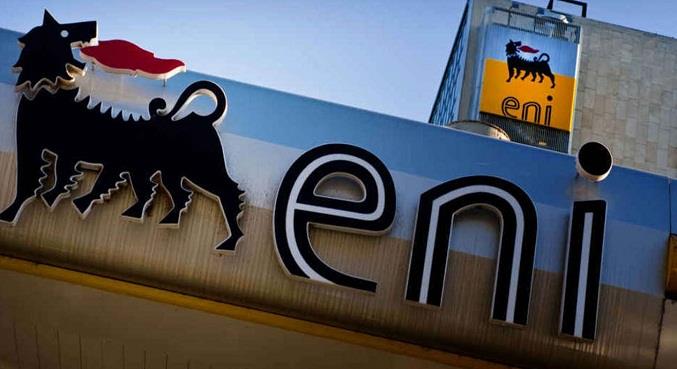(MENAFN- Venezuelanalysis) Caracas, August 31, 2023 (venezuelanalysis) – Venezuela's state oil company PDhas reportedly renegotiated the oil-for-debt deal struck last year with European firms Eni and Repsol in order to receive refined products while continuing to repay debt.
According to Reuters , Washington has already approved the new terms of the agreement and Caracas will get some 330,000 barrels of naphtha this week at PDVSA's Cardón port (western Falcón state) from Italy's Milazzo refinery, a joint venture between Eni and Kuwait Petroleum International.
The fuel deliveries would help Venezuela ease shortages, which have continued despite some improvements in recent years following the on-and-off reactivation of the country's main four refineries. The new agreement also aims to boost oil shipments to Europe.
In May 2022, theTreasury Department granted Italy's Eni and Spain's Repsol permission to recoup accumulated debt and dividends from their joint ventures in the Caribbean country and to help European allies tackle fuel shortages after Western sanctions cut off the flow of Russian crude amidst the Ukraine conflict.
Under the oil-for-debt swap deals, the two European corporations sent several cargoes mostly to Repsol's refineries in Spain before the agreement was halted in September as PDlooked to expand the swaps and receive fuel as well. In December, PDresumed the deal but only seven shipments were allocated since then as the negotiations for fairer conditions went on.
Additionally, Eni is reportedly in talks with Venezuelan oil authorities to increase output in the Corocoro off-shore oil field, located in the Gulf of Paria, which is run by the Petrosucre joint venture. Beforesanctions in 2019, the field was producing some 24,000 barrels per day (bpd) but recent output has fallen to 2,200 bpd.
Another project that could be expanded in the midst of negotiations is the Perla offshore gas field operated by Cardón IV near the maritime border with Colombia. Perla produces about 550 million cubic feet per day (mmcfd) of natural gas which PDbuys from Eni at international prices. A new expansion phase will see the field reach 800 mmcfd.
Eni and PDare likewise looking to export any gas and condensate surpfrom the offshore project. However, any deal to expand operations is subject toapproval via the Treasury Department's Office of Foreign Assets Control (OFAC) as a result ofsanctions on Venezuela that have effectively constituted a blockade of the country's hydrocarbon industry.
Initially, the Nicolás Maduro government did not look favorably upon cash-free transactions with foreign companies but accepted them as a way to increase exports and reduce debt that Caracas has accumulated because ofsanctions.
The oil-for-debt agreements were also the result of extensive lobbying by international oil firms after being forced to dwindle operations in their joint ventures with PDfollowing Washington's financial measures against PDin 2017 followed by the 2019 export embargo and the imposition of secondary sanctions since 2020.
The limited licenses granted by theTreasury to Chevron, Eni and Repsol have led other companies as well as Caribbean countries to seek similar deals, among them Russian state firm Roszarubezhneft and the Trinidad and Tobago government.
In January, Trinidad's Prime Minister Keith Rowley announced that OFAC had granted his country a two-year license to import natural gas from Venezuela's large offshore Dragon reserves but barring any cash payments. Caracas steadfastly refused to accept the terms, with President Maduro labeling them a form of colonialism.
As a result, the joint offshore gas project between Venezuela and Trinidad has remained stalled as talks over terms continue. The Dragon field contains approximately 4.2 trillion cubic feet (TCF) worth of deposits. If a deal is struck, the Caribbean island could gain access to 350 million cubic feet of gas per day and the operations would be run by Dutch multinational corporation Shell. A portion would be exported to Jamaica and the Dominican Republic in order to alleviate the countries' energy crisis.
On Wednesday, Trinidad's Minister of Energy and Energy Industries Stuart Richard Young visited Caracas and met with President Maduro to“continue to strengthen relations and alliances with the peoples of the Caribbean.” There was no official statement but it is speculated that the joint offshore gas project was one of the main topics discussed.
In July, Venezuelan Oil Minister and PDPresident Pedro Tellechea announced that the country was in advanced negotiations with foreign firms to develop its proven natural gas reserves, the world's eighth-largest estimated at more than 200 trillion cubic feet.
According to Reuters , pressure from the oil lobby has led toofficials drafting a proposal that could ease sanctions on Venezuela's oil sector to allow more companies and countries to import crude and gas products in the coming months.
However, the alleged sanctions relief would be conditioned on what Washington deems“free and fair” electoral conditions. Venezuela has presidential elections scheduled for 2024 and has continually rejectedinterference in the process.




















Comments
No comment